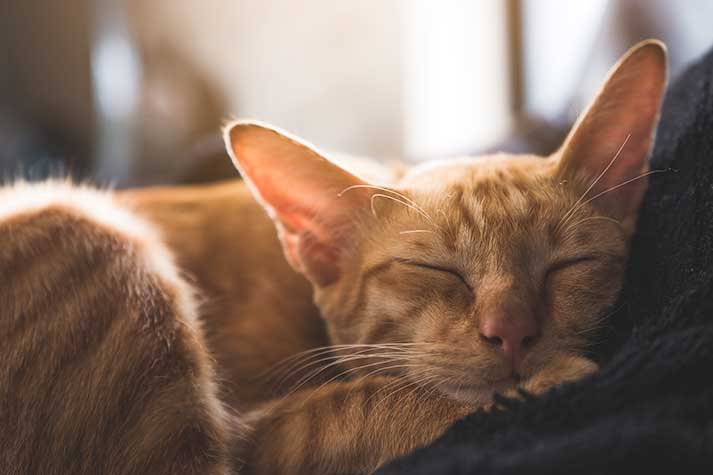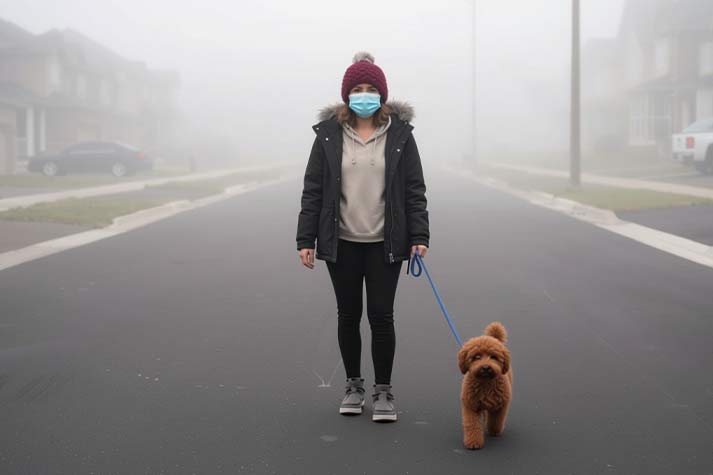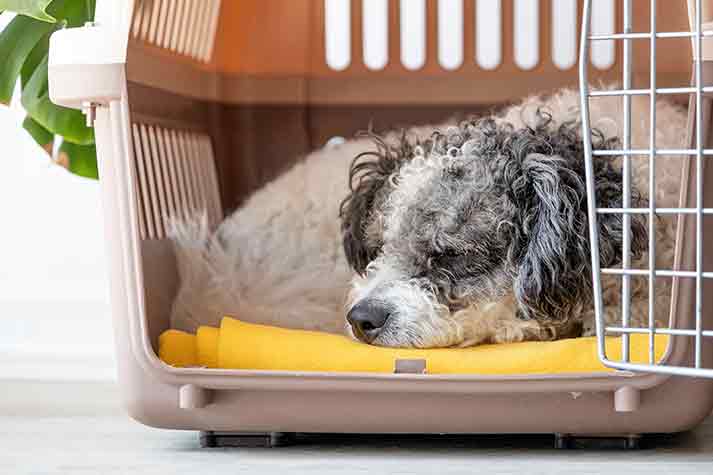
06 Nov
7 Reasons Why Cats Sleep So Much
If you live with a cat, you’ve probably wondered, why do cats sleep so much? One minute they’re chasing invisible prey, the next they’re curled up in a deep nap that seems to last all day. Cats are known for their long, luxurious sleeping habits, often resting between 13 to 16 hours a day. Understanding your cat’s sleep can help you ensure they’re not just resting, but thriving.
Cats sleep more than most animals because their bodies are built for short bursts of energy followed by long recovery periods. Whether at home or during a move, helping them feel safe and relaxed, something even a reliable pet travel service takes into account, is key to maintaining their natural sleep rhythm.
Here’s Why Your Cat Sleeps and Dreams So Much
Cats Are Natural Hunters
Even the most pampered indoor cat shares DNA with wild hunters. In the wild, cats conserve energy for hunting, stalking, and pouncing, all of which require sudden bursts of power. Sleeping for long stretches allows them to store that energy. So, when your cat naps all afternoon, they’re not lazy, just following their instincts. This natural behaviour explains a lot about cat sleeping habits and why your furry friend is always ready for a midnight sprint across the hallway.
They Recharge After Short Bursts of Activity
Cats may look calm, but every zoomie session, jump onto the counter, or swat at a toy takes energy. After these bursts of activity, they need long naps to recharge. When you think about it, their daily routine is pretty balanced like play, eat, groom, sleep and repeat. It’s their natural rhythm, one that keeps both body and mind in harmony. This also explains how many hours cats sleep as their day is made up of multiple shorter naps that together add up to nearly two-thirds of the day.
Age Plays a Big Role
Age has a big influence on how long cats sleep. Kittens need lots of rest for growth and development while adult cats balance play and rest more evenly. On the other hand, senior cats often sleep more as their energy levels drop. Now if you are wondering if it’s normal for cats to sleep all day, it usually is, especially for older or very young cats. The key is to notice sudden changes like if your cat starts sleeping much more or less than usual, it might be worth checking with a vet.
Sleep Means Safety and Comfort
Cats sleep deeply only when they feel safe. A cat that dozes on its back or exposes its belly trusts its surroundings completely. When travelling or adjusting to new places this sense of security can be disrupted. During international pet relocation, it’s important to give cats familiar bedding or toys so they feel protected enough to rest properly. The more secure they feel, the more natural their healthy sleep routine will remain.
Weather Influences Their Sleep
Cats are sensitive to changes in weather. On gloomy, cold, or rainy days, they tend to sleep longer. Warmer, sunny days might bring shorter naps and more window lounging. This natural adjustment helps them conserve energy and maintain comfort, something their instincts have taught them over centuries.
Cats Experience Light and Deep Sleep
If your cat’s tail twitches or paws move while sleeping, that’s a sign of REM sleep - the deep, dream-filled stage. Cats alternate between light sleep where they’re alert to sounds and deep sleep where true rest happens. Light sleep dominates most of their nap time so they can wake instantly if needed. This pattern offers insight into understanding your cat’s sleep and how adaptable they are to different environments.
Sleep Helps Keep Them Healthy
Lastly, cats sleep to stay well. Sleep helps regulate their metabolism, repair muscles, and maintain emotional balance. A cat deprived of rest may become irritable, withdrawn, or less playful. Creating a consistent routine with quiet corners, cozy beds, and predictable meal times, supports a healthy sleep routine for cats. Think of sleep as a part of their wellness, not a sign of laziness.
So, How Many Hours Do Cats Sleep?
Most cats sleep between 13 to 16 hours daily, but this can extend to 18 or even 20 hours for kittens or seniors. Variations are normal, what matters most is consistency. If your cat’s sleep habits change suddenly, it could be a sign of stress or illness.
Keeping Cats Well Rested During Travel
Travel or relocation can temporarily disrupt a cat’s sleep cycle. The stress of new smells, sounds, or environments can make them restless. When moving across cities or countries, comfort and familiarity are key. That’s why experienced pet travel services providers like us, always recommended bringing along your cat’s favourite blanket, toy, or bed. Small details like these help maintain their routine and keep them feeling calm, even during long journeys.
Final Thoughts
Cats aren’t lazy, they’re built to rest, recharge, and stay ready. Those endless naps have a biological purpose that helps them thrive. Understanding why cats sleep so much lets you care for them better, ensuring both physical and emotional wellbeing. Whether they’re curled up on your sofa or traveling to a new home, respecting their natural rhythms ensures they stay comfortable, confident, and content wherever life takes them.
FREQUENTLY ASKED QUESTIONS &
Why do cats sleep so much during the day?
Cats are crepuscular, meaning they’re most active at dawn and dusk. They sleep during the day to conserve energy for those active hours, even if they live indoors.
How many hours a day should a healthy cat sleep?
Adult cats typically sleep 13-16 hours a day. Kittens and senior cats might sleep up to 20 hours. What matters is that their pattern stays consistent over time.
Is it normal for my cat to sleep all day and stay up at night?
Yes, it’s normal. Cats naturally follow a dusk-to-dawn rhythm. You can gently adjust their routine by playing with them more in the evening and feeding them before bedtime.
Do cats dream when they sleep?
Yes, during REM sleep, cats may twitch their paws or whiskers, signs that they’re dreaming. Scientists believe they replay daily activities like hunting or playing.
How can I help my cat maintain a healthy sleep routine?
Provide a quiet, cozy sleeping spot, stick to regular feeding and play times, and avoid disturbing their naps. A predictable environment supports deep, restorative sleep.
Does traveling affect a cat’s sleep?
Yes, travel can cause temporary sleep disruption. Keeping familiar scents and objects nearby during trips or international pet relocation helps them relax and adjust faster.






AUTHOR’S BIO
Carry My Pet
Passionate pet enthusiasts and globetrotters, dedicated to easing furry friends' journeys worldwide. Penning tales of compassion at CarryMyPet, where every relocation is a tail-wagging adventure.